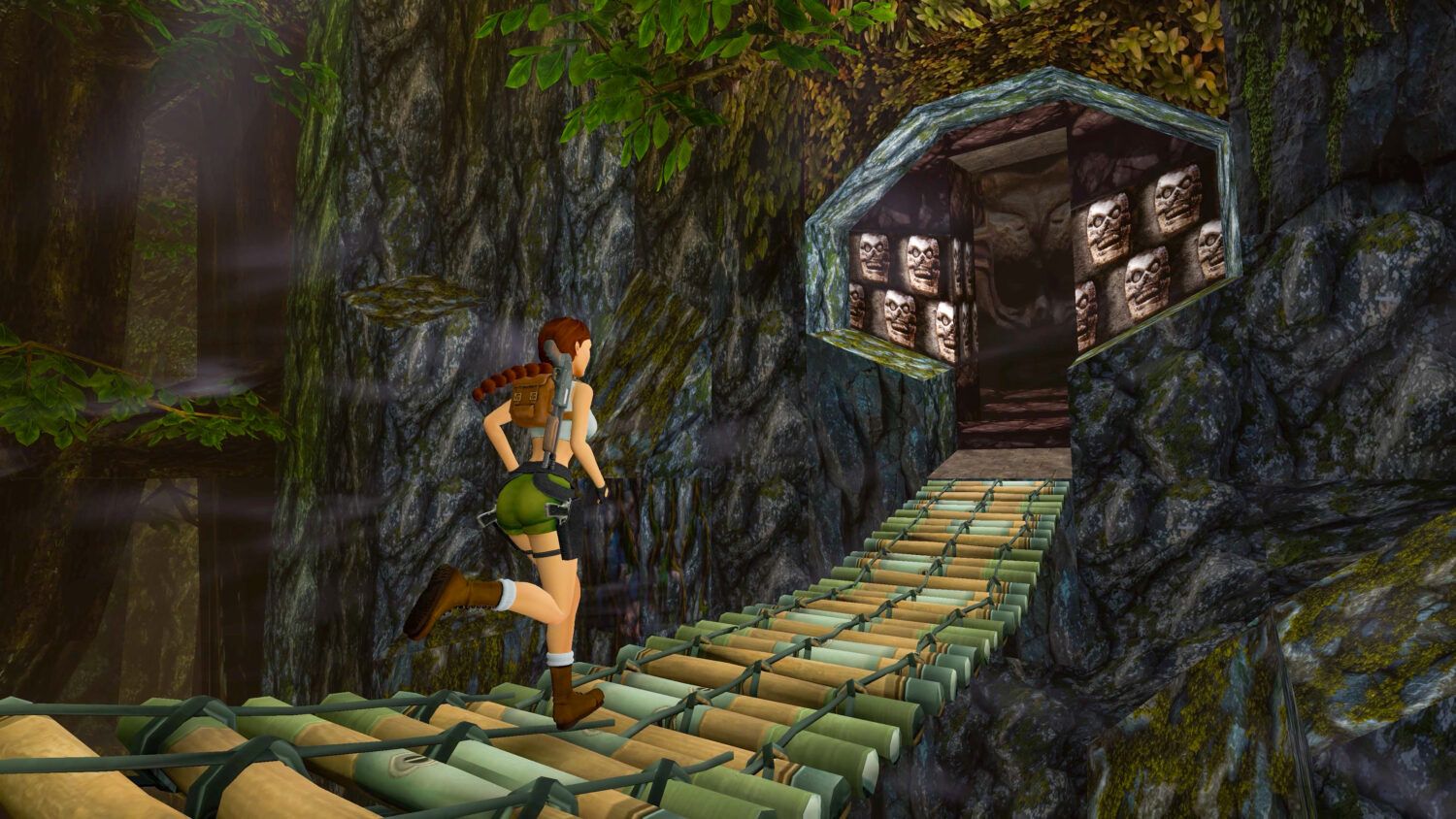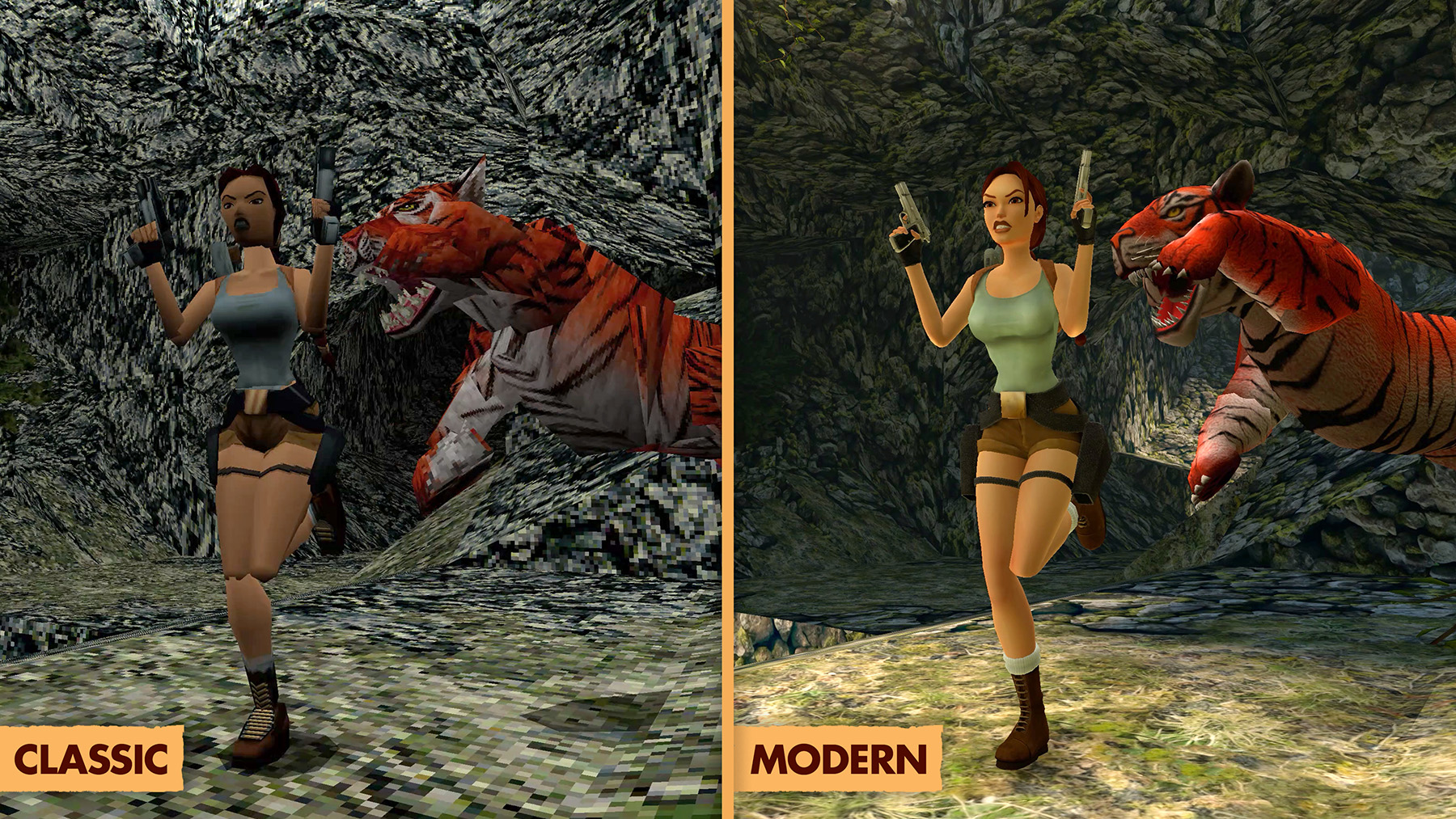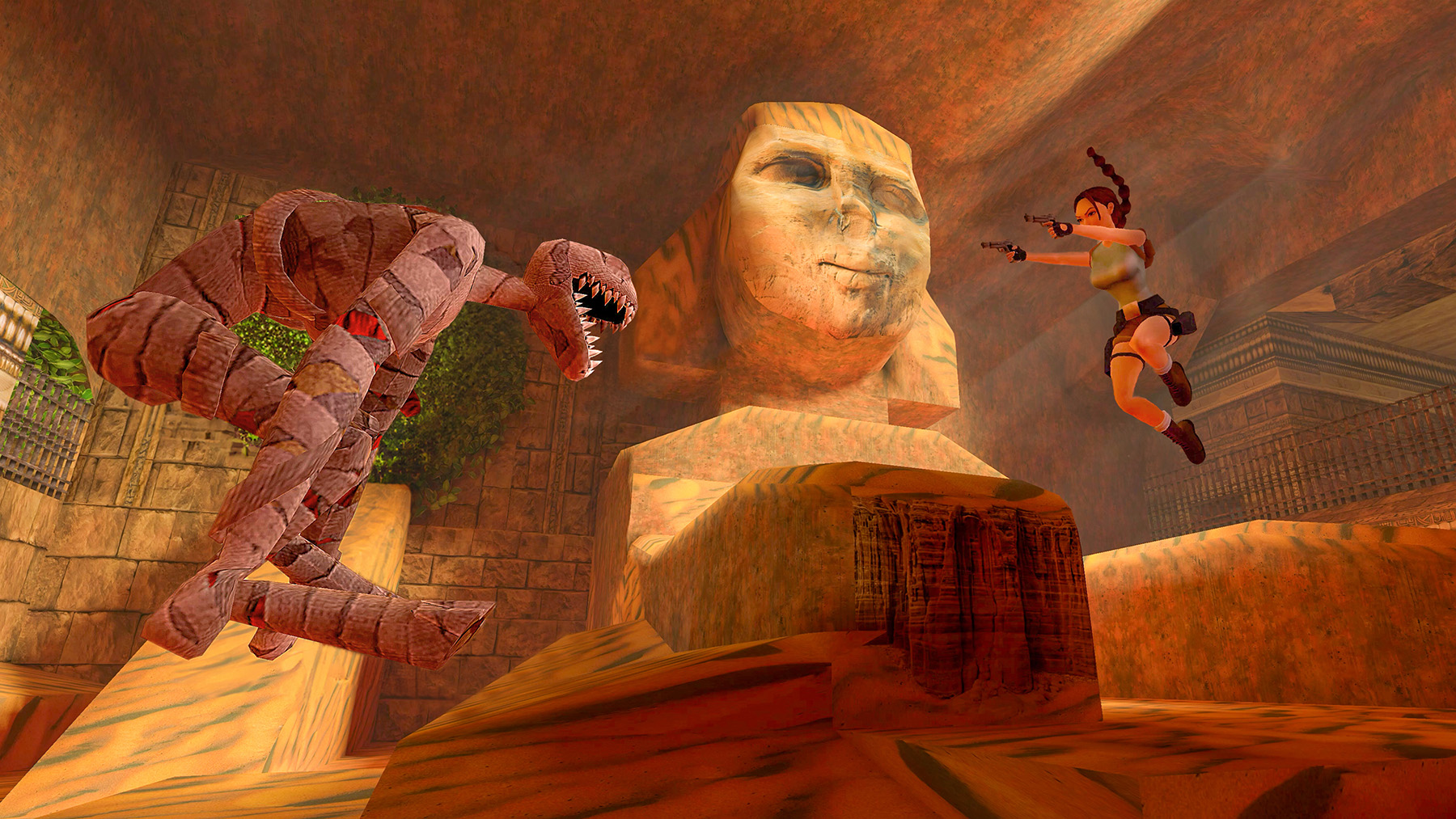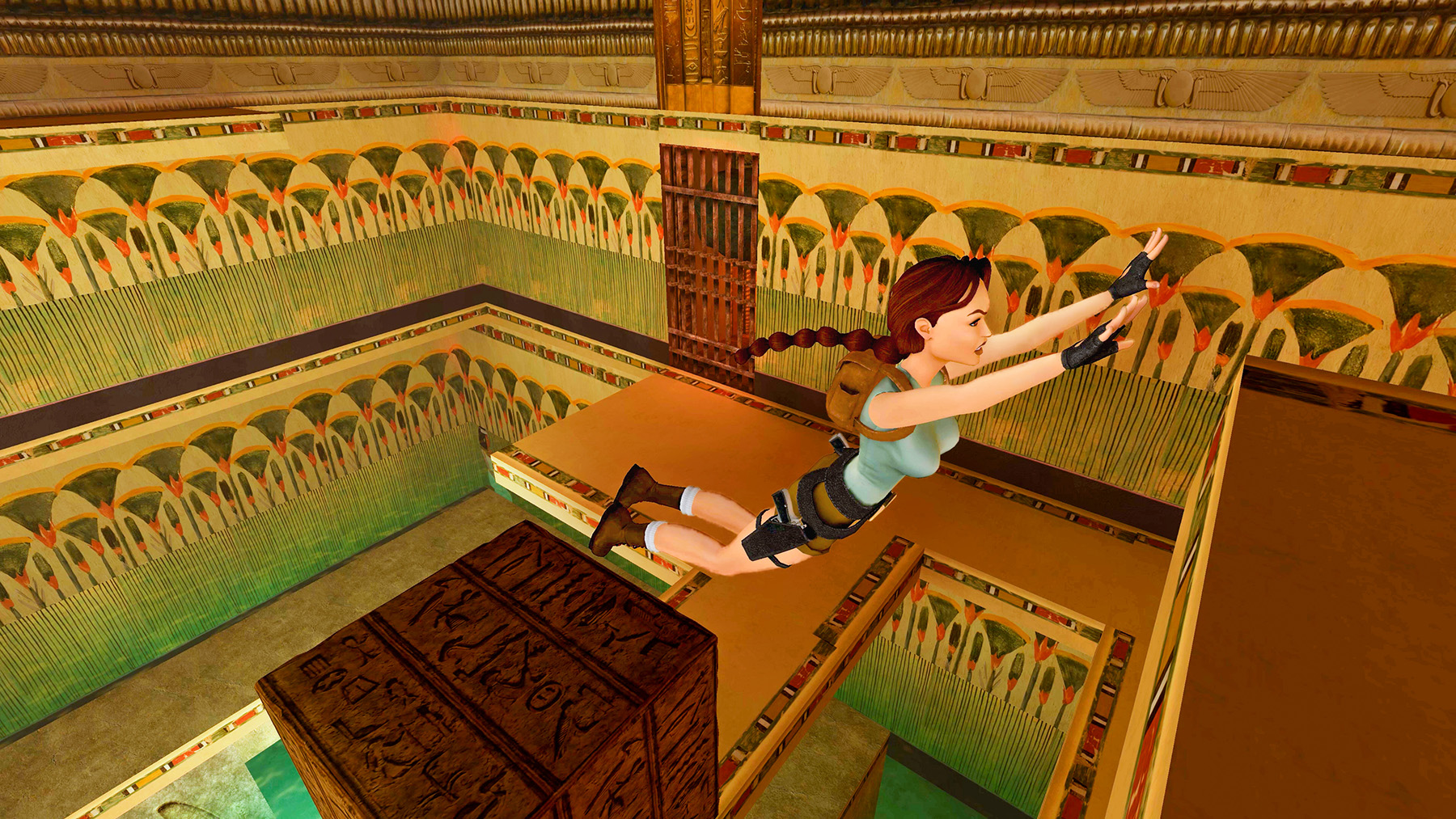A trip back to when Lara only played for sport.
We’ll consider this partly a review of, partly an appreciation for Tomb Raider I-III Remastered Starring Lara Croft. All gamers of a certain age have those titles that transport us to a different time. For most Pure Nintendo readers, that’s likely an NES or GameCube game. For me, it’s Tomb Raider 2—on the Macintosh of all things.
I have vivid memories of playing it in the basement (mine, mind you, not my mom’s). I wrote its review for a now-defunct Mac website while waiting in my car for a job interview to start. The Honda was eventually lost to a combination of black ice and a concrete median barrier. The job I got and still have to this day. And now, I have Tomb Raider again.
Tomb Raider I-III Remastered Starring Lara Croft (as opposed to whom…Tennessee Buck?) gives you the first three Tomb Raider games, originally released between 1996 and 1998. These are arguably the best games in the franchise’s history—before the original series lost its way, and before Square Enix completely removed the charm and personality with their Survivor trilogy reboot. But do I-III hold up after all this time? In the important ways, yes.
The overall package leaves a bit to be desired. You get the games and their DLC: Unfinished Business, Golden Mask, and The Lost Artifact. All three games are quite effectively restored; the graphics aren’t going to turn heads in 2024, but they look good and perform wonderfully in both docked and handheld modes. Aspyr has settled on a sweet spot between the original presentation and a smoother, more palatable display. Lighting is more realistic, textures actually lift off of objects, and everything is less…pointy.
That said, you have the option to immediately switch between the remastered and original graphics by pressing the Joy-Con + button. Aside from enjoying the contrast between the two, there’s a practical use here. Tomb Raider games involve a lot of cleverly hidden passageways that lead to coveted health kits and rare artifacts, and those openings are very hard to see with the modern lighting and shading. The original graphics are much brighter, making them useful for exploring or even timing your jumps when sliding on ramps.
I won’t dig into the details of each game, as the basics carry across all three. You control Lara in a third-person perspective as she runs, jumps, slides, climbs, shimmies, swings, swims, and—on occasion—drives her way through “tombs” of all sorts—everything from mountaintop ruins to sunken shipwrecks. None of these environments are “open” by today’s standards. Point A to point B is fairly linear, although some of the levels may not feel that way when you first enter them.
Combat mostly consists of firing various weapons at beasts, both realistic and mythical. You’ll sometimes take on other humans, too, although these games are by no means the bloodbaths the series would become (so why the M rating, I wonder). The focus is very much on exploration and environmental puzzle-solving, with combat occasionally making that more difficult.
Of the three games included here, I’ll opine that Tomb Raider II struck the best balance between all of this. Tomb Raider serves as a fun introduction, and it’s the easiest of the three. Tomb Raider II was when the developers had Lara firing on all cylinders. Tomb Raider III starts to get convoluted and is a bit of a let-down, but I still suggest playing it last because it’s easily the most difficult; spending time with the first two will ensure your control skills are up to par.
Speaking of controls, you’ll likely want to change the defaults before attempting to play. I was pulling my hair out after 15 minutes with Tomb Raider; a move as simple as turning Lara around against a wall was an exercise in frustration. It seems the game defaults to “tank” controls instead of “modern,” and I definitely needed modern. A better description of the button mapping would’ve also been appreciated.
In addition to the controls, some other problems came over, too. Although the visual enhancements to the gameplay look pretty good, the same love was not shown for the cinematics. That’s not a big deal, but the opening scene of Tomb Raider leaves a pretty bad first impression. Aspyr also could’ve revamped the game selection and setting screens to make them more user-friendly. It all reeks of the ’90s. That’s in line with the source material, of course, but I don’t think we need the game options to be historically accurate.
Also, any gameplay issues from the originals are still here. You’ll be fighting the camera positioning a lot, especially during combat. And those timed puzzles are as annoying as over, especially in the later games when getting to a tomb door before it closes requires advanced button memory and execution.
What I won’t complain about is the lack of bonus content. With this package, you get three excellent games, the DLC for each game, and access to Lara’s mansion (essentially a training course) for $30. That’s $10 a game, and I’d rather take that than pay $50 to get included historical content and interviews. Aspyr’s asking us to focus on the gameplay, and they’re charging us accordingly. A physical release would be nice, but maybe we’ll get that from Limited Run Games, as they’ve worked with Aspyr in the past.
I’ve greatly enjoyed running through these games again. Unless you rate your action games by the body count, Tomb Raider I through III are still a blast to play in spite of (or maybe because of) their forced linear progression. I say that while fully acknowledging my nostalgia for these old games. I don’t know that younger games who didn’t grow up with Lara—or who started with the Square Enix games—will feel the same. But at $30 for all three, this collection is certainly worth exploring.
Review: Tomb Raider I-III Remastered (Nintendo Switch)
Great
Tomb Raider I-III Remastered Starring Lara Croft does just enough with the original Tomb Raider games to make them a great fit for the Nintendo Switch. The ability to instantly flip between the original and remastered graphics is entertaining, but the real fun lies with the games themselves. And these are the three best Tomb Raiders ever made.







